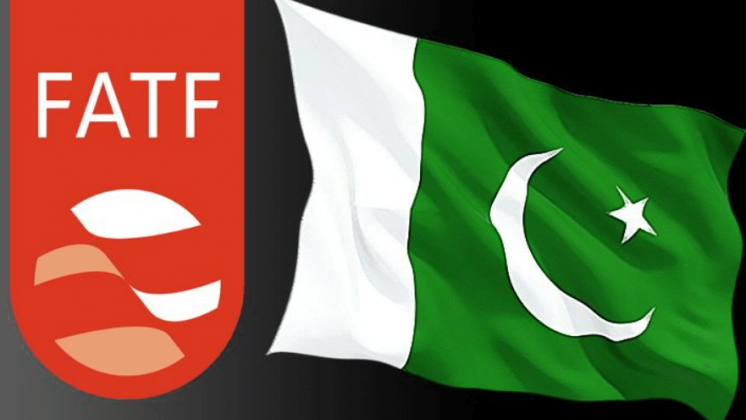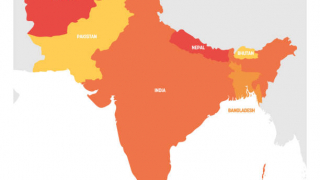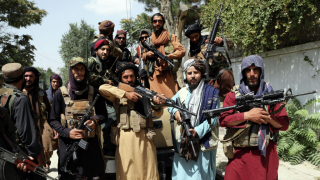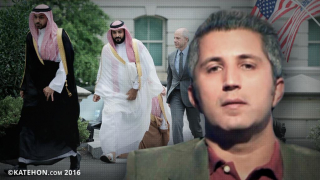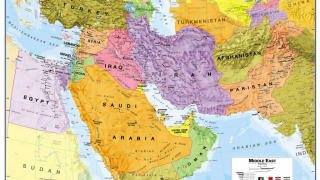Pakistan’s Defence against its FATF Status puts India on Spot
24.02.2020
Few weeks earlier, Indian media reports link that in the Indian estimation there is 'a 75 per cent chance' of Pakistan exiting the Financial Action Task Force 'grey list' at the FATF plenary on February 16 in Paris is a significant upgrade of the earlier expectation in Delhi that Islamabad was hanging on the abyss, perilously close to being 'black-listed' for money laundering and terror financing. Quite obviously, it can no longer be kept from public view that the ground beneath the feet of Indian diplomacy has been shifting in recent months, largely due to the US-Pakistan “Rapprochement”.
Financial Action Task Force’s (FATF) meeting was held in Paris on 16th February where it had to decide Pakistan’s status on the grey list. Pakistan was last placed on FATF’s grey list back in June 2018 and was given a 15-month deadline to implement a 27-point action plan to avoid being blacklisted. Now, Pakistan may stay on the grey-list for a few months but it surely has deceived the risk of getting on to blacklist; which is a great achievement for Pakistan as it brings the wave of confidence over Pakistan’s new policies against money laundering and effective war against terrorism.
On January 28th, the State Bank of Pakistan announced that the country has made significant progress to get off the grey list. Pakistan’s team, led by the Federal Minister for Economic Affairs, Hammad Azhar, put forth the country’s compliance report in a meeting held in China from January 21 to 23. Out of the total 27 action plans, Pakistan was fully compliant on 5 while promising progress was shown for the remaining 22 points. At the meeting, Pakistan was able to convince China, the United States, and other European countries that it had taken effective steps to counter terror financing from October 2019 till January 2020.
“Pakistan has made great efforts to strengthen its domestic counter-terrorism financing system with visible progress. Its political will and active efforts should be recognized and encouraged by the international community.” China’s deputy foreign minister said.
As a result of this meeting, Pakistan was required to gain 12 out of 39 votes to be removed from the grey list. Besides China, Pakistan was fully backed by Malaysia and Turkey but faced opposition from India.
Pakistani Officials were already confident the country won’t be put on the blacklist and at worst the grey list period will be extended until Pakistan fully complies with an action plan; and that is what exactly happened.
Delhi is grudgingly making adjustments to the compelling reality. True to form, the Indian media would prefer to attribute to China all good things that may happen to Pakistan -- and, of course, to the US all good things that happen to India. Thus, Delhi said that the vast improvement in Pakistan's FATF standing is due to 'heavy lobbying by China and with the help of a private consultant who is an FATF veteran'. There is a mental block in acknowledging that Pakistan might indeed have made efforts to improve its FATF standing. The FATF is a technical body and comprises countries that have a mind of their own.
Greater realism is needed on the part of Delhi to admit that Pakistan's standing has been steadily improving in the 39-member grouping since the FATF’s 2015 statement which identified it as having made significant progress in improving its regime and had noted that Islamabad had established the legal and regulatory framework to meet its commitments in its action plan regarding the strategic deficiencies that the FATF had previously identified. The 2015 report decided to exempt Pakistan from the FATF’s monitoring process.
According to Pakistani media reports, in February 2018, the FATF had found serious deficiencies in the country's anti-money laundering and combating financing of terrorism regimes and gave Pakistan a 27-point action plan to exit the grey list. And in October last year, Pakistan was given another warning to show full compliance by the forthcoming plenary meeting in Paris in February.
The Pakistani reports claimed that the sticking points have significantly narrowed down to two areas, namely, cash couriers and convictions in terror financing cases where Pakistan was still be deemed non-compliant, necessitating its continuance in the so-called 'grey list' for yet another 3-6 months.
Significantly, Prime Minister Imran Khan had personally taken up the matter with US President Donald J Trump at their meeting in Davos. This cautious optimism was also reflected in the meeting in Islamabad between Interior Minister Ijaz Shah and the visiting US delegation led by Alice Wells, acting assistant secretary of state where the latter 'applauded the progress' made by Pakistan 'despite the scarcity of resources'.
The sea change in the situation around Pakistan has policy implications for India. If the FATF lets Pakistan off the hook in its next meeting, which is to be expected, it would signify a big boost to Pakistan's standing in the fight against terrorism. Delhi, on the other hand, will lose the propaganda advantage. The mellowing in the US attitude has already removed the cutting edge of the FATF pressure on Pakistan. Indian officials had thought that the FATF was like a Damocles's sword hanging on Pakistan's neck. But now it dawns on them that chopping off the Pakistani head was not on the American mind.
It may or may not be a coincidence that the softening of the US posture is taking place against the backdrop of the successful Afghan peace negotiations where Pakistani help was of critical importance. Clearly, a full-fledged resumption of US aid and investment in the Pakistani economy in the period ahead cannot be held hostage by the FATF affair. A clearing of the deck is becoming necessary. In President Trump's evaluation, the US has never been as close to Pakistan as it is today. All this once again highlights that India and the US have never really been on the same page in regard of terrorism.
The US stance is sensible while the Indian stance is rigid. The US is realistic in making assessments regarding Pakistan's record on terrorism while India focuses on coercive diplomacy. India's position on dialogue with Pakistan is becoming increasingly untenable. Pakistan’s FATF moment highlights the Indian predicament. Delhi is rejecting third-party mediation in Kashmir, but in the same breath also vows not to bilaterally engage with Pakistan to resolve differences peacefully through dialogue.
At this rate, India's complaint about terrorism will be seen by the international community increasingly as a matter of irritable bowel syndrome on account of its own body ailments. However, the present Indian government is perfectly pleased with the upholding of the enemy image of Pakistan which helps it to derive advantages in domestic politics especially during election time.
The member countries have lauded Pakistan's efforts to date with regard to putting an end to terrorism financing and money-laundering. In the last four months since October 18, 2019, Islamabad has taken exemplary action against the groups engaged in terrorism financing and has worked quite hard in complying with the Paris-based watchdog's conditions. In addition, the arrest and sentencing of outlawed group Jamaat-ud-Dawa's (JuD) chief, Hafiz Saeed, to five years and six months in two cases has effectively added to Pakistan's international standing.
The improvement indicates that all efforts to have the FATF blacklist Pakistan seem to have failed as the country was seen in a relatively positive light during the plenary meeting. It further shows trust in the country's economic system and its steps towards improvement. Pakistan only just avoiding the blacklist would also improve its economic position around the world.

